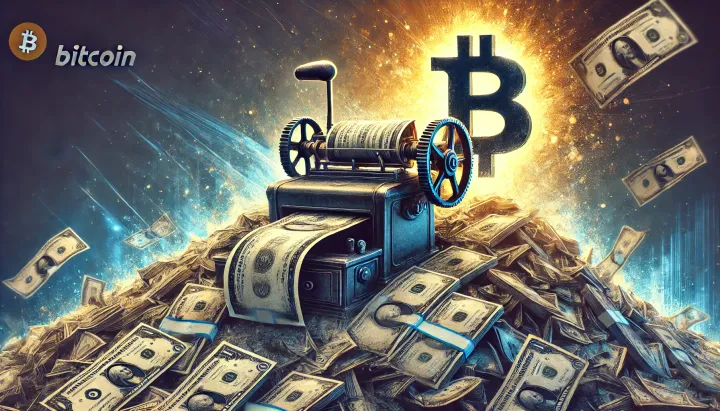Key Insights from the All-In Podcast: Google Breakup, Starbucks Leadership, and Kamala Harris's Price Controls
The broadcast of the All-In Podcast on August 16, 2024, covered a series of significant and diverse topics, each impacting various industries and political spheres.

Summary
The August 16, 2024, episode of the All-In Podcast delved into critical issues that are likely to have wide-ranging impacts across multiple sectors. The hosts discussed the DOJ’s potential breakup of Google, emphasizing the complexities and possible consequences for innovation and market competition. They also analyzed the abrupt resignation of Starbucks CEO Laxman Narasimhan, linking it to the broader challenges of inflation and operational inefficiencies faced by the retail giant. Additionally, the podcast explored Kamala Harris’s proposed federal price controls on food and groceries, raising concerns about the policy’s long-term economic implications. Together, these discussions underscore significant trends and potential shifts in the market, with broad implications for technology, retail, and policy sectors.
Overview
The podcast opened with an in-depth analysis of the DOJ’s antitrust actions against Google, which could lead to the breakup of the tech giant into separate entities like YouTube, Android, and Google Chrome. The hosts debated whether this move would enhance market competition or disrupt the integrated ecosystems that have driven innovation at Google. They emphasized the complexity of Google’s infrastructure and the potential operational challenges that could arise from such a breakup. The discussion also touched on the broader implications for the technology sector, as other large companies might face similar scrutiny.
The conversation then shifted to Starbucks, where CEO Laxman Narasimhan’s sudden resignation after only 16 months in the role was discussed. The hosts linked his departure to the company’s struggles with inflation, operational inefficiencies, and changing consumer behavior. They speculated on the strategies that the incoming leadership might employ, such as cost-cutting and automation, to address declining profitability and customer satisfaction. The discussion highlighted the broader challenges facing the retail industry, particularly in balancing the need for operational efficiency with maintaining brand identity and customer loyalty.
Finally, the podcast addressed Kamala Harris’s proposed federal price controls on food and groceries, a policy that sparked strong reactions from the hosts. They argued that price controls would likely lead to reduced competition, lower investment in innovation, and long-term economic inefficiencies. The hosts pointed out that the root causes of inflation are more complex than corporate greed and involve factors like federal spending and supply chain disruptions. The discussion underscored the broader political and economic debates leading up to the 2024 election, with the potential to significantly impact voter behavior and market dynamics.
Stakeholder Perspectives
Who might be interested in these insights and why?
- Tech Industry Leaders: Likely concerned about the precedent set by Google’s potential breakup, which could lead to increased regulatory scrutiny and challenges in maintaining integrated ecosystems that drive innovation.
- Retail Industry Executives: Focused on the implications of leadership changes and the need for strategies that address rising costs, labor challenges, and shifts in consumer behavior.
- Investors: Watching closely how these developments could impact market valuations, particularly the potential unlocking of shareholder value through corporate breakups or shifts in business strategies.
- Policymakers: Facing the challenge of balancing regulation with the need to maintain a competitive and innovative market environment, while also considering the broader economic implications of price controls.
- Consumers: Likely to be directly affected by the outcomes of these issues, particularly in terms of service quality, product availability, and the cost of goods.
Implications
The proposed breakup of Google could set a major precedent in antitrust enforcement, potentially reshaping the tech industry by promoting competition while also risking the disruption of integrated ecosystems that have driven innovation. Policymakers will need to carefully balance these outcomes, ensuring that the breakup promotes fair competition without undermining the benefits that scale has historically provided in technology development.
Starbucks’ leadership challenges, amid rising inflation and operational inefficiencies, highlight the difficulties that companies face in maintaining profitability while adapting to shifting consumer preferences and labor market pressures. The focus on cost-cutting and automation could streamline operations but may also weaken brand loyalty and employee morale, necessitating strategic leadership to navigate these economic headwinds effectively.
Kamala Harris’s proposed federal price controls reflect a broader political and economic debate about managing inflation and market dynamics. While intended to provide consumer relief, such policies historically risk reducing competition and stifling innovation. The implications for businesses and consumers could be significant, potentially leading to market inefficiencies and long-term economic consequences if not carefully managed.
Future Outlook
The potential breakup of Google is likely to catalyze a shift towards a more regulated and fragmented technology landscape, where companies may need to reassess their business models and focus on core competencies to thrive. This shift could either foster greater innovation through increased competition or create challenges in maintaining the synergies that have driven industry growth.
In the retail sector, the acceleration of automation in response to rising labor costs and operational challenges is expected to continue. Companies like Starbucks must balance the efficiency gains from automation with the need to preserve service quality and customer loyalty, as these factors will be critical in maintaining competitive advantage in a changing market environment.
Politically, Kamala Harris’s price control proposal is poised to become a key issue in the 2024 election, with significant implications for economic policy. The policy’s effectiveness and voter reception will likely shape the future direction of U.S. economic strategy, particularly in addressing inflation and maintaining market stability. The outcome could influence both the election and broader economic trends in the years to come.
Take-Home Messages
- The potential breakup of Google could reshape the technology sector, impacting innovation and market competition.
- Starbucks faces significant challenges with leadership transitions, operational efficiency, and maintaining customer loyalty amidst economic pressures.
- Kamala Harris’s proposed price controls raise concerns about the long-term economic impacts, particularly on competition and investment in innovation.
- Automation is increasingly seen as a solution to rising costs in retail, but it must be balanced with maintaining service quality and employee relations.
- The 2024 election will likely hinge on economic policies, with significant implications for both the economy and voter behavior.
Broadcast details
Source
- Title: Break up Google, Starbucks CEO out, Kamala’s price controls, Boeing disaster, Kursk offensive
- Podcast: All-In Podcast
- Hosts: Chamath Palihapitiya (@chamath), Jason Calacanis (@Jason), David Sacks (@DavidSacks), David Friedberg (@friedberg)
- Date of Broadcast: 16 August 2024
- Video link:
Keywords
- Breakup of Google
- Starbucks CEO resignation
- Kamala Harris price controls
- Boeing Starliner disaster
- Google antitrust implications
- Starbucks operational challenges
- Inflation and price gouging
- SpaceX and NASA
- Labor market dynamics
- Federal policy on price controls
Issues (threats and opportunities)
Google's Breakup Implications: The potential breakup of Google presents a dual-edged sword. On one hand, it could unlock shareholder value and increase market competition; on the other, it risks fragmenting a highly integrated infrastructure, potentially stifling innovation and leading to operational inefficiencies.
Starbucks Leadership Transition: The sudden resignation of Starbucks' CEO highlights vulnerabilities in the company’s operational strategy. The incoming leadership’s focus on cost-cutting and automation could streamline operations but might alienate employees and customers, exacerbating the challenges of inflation and unionization.
Kamala Harris’s Price Controls: The proposed federal price controls on food and groceries could disrupt market dynamics by reducing competition and discouraging investment in innovation. This policy might provide short-term relief but could lead to long-term economic inefficiencies and shortages.
Impact of Antitrust Actions on Tech Innovation: The potential breakup of Google raises concerns about the broader impact of antitrust actions on tech innovation. While promoting competition, such actions could also dismantle ecosystems that drive technological advancements.
Labor Market Dynamics in the Service Industry: The discussion on Starbucks underscored the ongoing challenges in the service industry, particularly the tension between rising labor costs, automation, and customer satisfaction. The balance between cost efficiency and service quality remains a critical issue.
Space Industry Challenges: The Boeing Starliner disaster highlighted the challenges faced by legacy aerospace companies in the new era of space exploration. Boeing’s struggles contrast with SpaceX’s successes, raising questions about the future of public-private partnerships in space.
Inflationary Pressures on Consumer Goods: The ongoing inflationary pressures, exacerbated by federal policies, are driving significant changes in consumer behavior and business strategies. Companies are forced to navigate rising costs while maintaining customer loyalty and profitability.
Political Influence on Economic Policy: The influence of political agendas on economic policy, as seen in Kamala Harris’s price control proposal, presents both risks and opportunities. The alignment (or misalignment) of such policies with economic realities could significantly impact voter behavior and market outcomes.
Automation in Retail: The push for automation in retail, as discussed in the context of Starbucks, presents both opportunities for efficiency and threats to employment. The transition to more automated processes could redefine the service industry but may face resistance from both employees and consumers.
Strategic Shifts in Technology Companies: The potential breakup of Google could force strategic shifts within technology companies, prompting them to focus more on core competencies or explore new business models. This could reshape the competitive landscape of the tech industry.
Five Key Research Needs
- Impact of Antitrust Actions on Innovation: The potential breakup of Google presents a critical opportunity to understand the broader implications of antitrust actions on innovation within the tech sector. Research is needed to explore how such breakups influence the integrated ecosystems that have historically driven technological advancements. This understanding is vital for policymakers to craft regulations that promote competition without stifling innovation, ensuring that the tech industry continues to thrive while being fairer and more competitive.
- Long-term Effects of Price Controls: Kamala Harris’s proposed price controls on food and groceries could have far-reaching economic consequences. It is essential to investigate the long-term effects of such policies, particularly their impact on market competition, investment in innovation, and consumer prices. This research is crucial for developing sound economic policies that address inflation while avoiding the pitfalls of past experiments with price controls, which have often led to market inefficiencies and shortages.
- Automation and Employment in the Service Industry: The increasing push for automation in retail and service industries, exemplified by Starbucks, raises important questions about the future of employment. Research is needed to assess how automation will reshape job availability, employee roles, and consumer experiences. Understanding these dynamics is critical for businesses to implement automation in a way that enhances efficiency without sacrificing customer satisfaction or creating significant job losses.
- Challenges in Public-Private Space Partnerships: Boeing’s struggles with its Starliner program highlight the challenges faced by legacy aerospace companies in the new era of space exploration. Research should focus on identifying the root causes of these technical issues and developing strategies to ensure the success of future public-private partnerships in space. This research is essential for maintaining U.S. leadership in space exploration and ensuring that collaborations between government and private industry are both effective and sustainable.
- Inflation and Consumer Behavior: The sustained inflationary pressures on consumer goods are driving significant changes in consumer behavior and business strategies. Research is needed to understand the factors contributing to inflation and how businesses can adapt to these shifts in consumer preferences. This research will provide valuable insights for companies looking to navigate inflationary environments, maintain profitability, and meet evolving consumer demands.
Implications for Bitcoin
Technological Trends and Innovation in Bitcoin
The potential breakup of Google highlights the significance of innovation within large tech conglomerates and the potential consequences of regulatory actions. For the Bitcoin industry, this serves as a reminder of the importance of technological innovation in maintaining competitive advantage. As Bitcoin technology continues to evolve, integrating advancements like AI-driven Bitcoin analysis and automation will be crucial in enhancing the efficiency and security of Bitcoin trading and mining operations. The Bitcoin industry must stay ahead of technological trends, particularly in areas like AI, quantum computing, and robotics, to ensure that it remains resilient in the face of regulatory changes that could disrupt existing business models.
Regulatory Developments and Socio-Economic Impacts
The podcast’s discussion of Kamala Harris’s proposed price controls reflects broader regulatory challenges that could also impact the Bitcoin industry. As governments around the world consider stricter regulations on cryptocurrencies, the Bitcoin industry must be prepared to navigate these changes by adopting robust compliance strategies and innovating within the regulatory framework. The potential for regulatory actions similar to those discussed in the context of Google could force Bitcoin companies to rethink their business models and operations to ensure they remain compliant while continuing to innovate.
The socio-economic impact of Bitcoin, particularly in the context of renewable energy and sustainability, is another critical area of focus. The industry’s growing attention to Bitcoin and green tech solutions reflects a broader commitment to sustainability, which is increasingly important in the face of global regulatory scrutiny. By investing in Bitcoin and renewable energy systems, the industry can not only mitigate its environmental impact but also position itself as a leader in the transition to a more sustainable global economy.



Comments ()